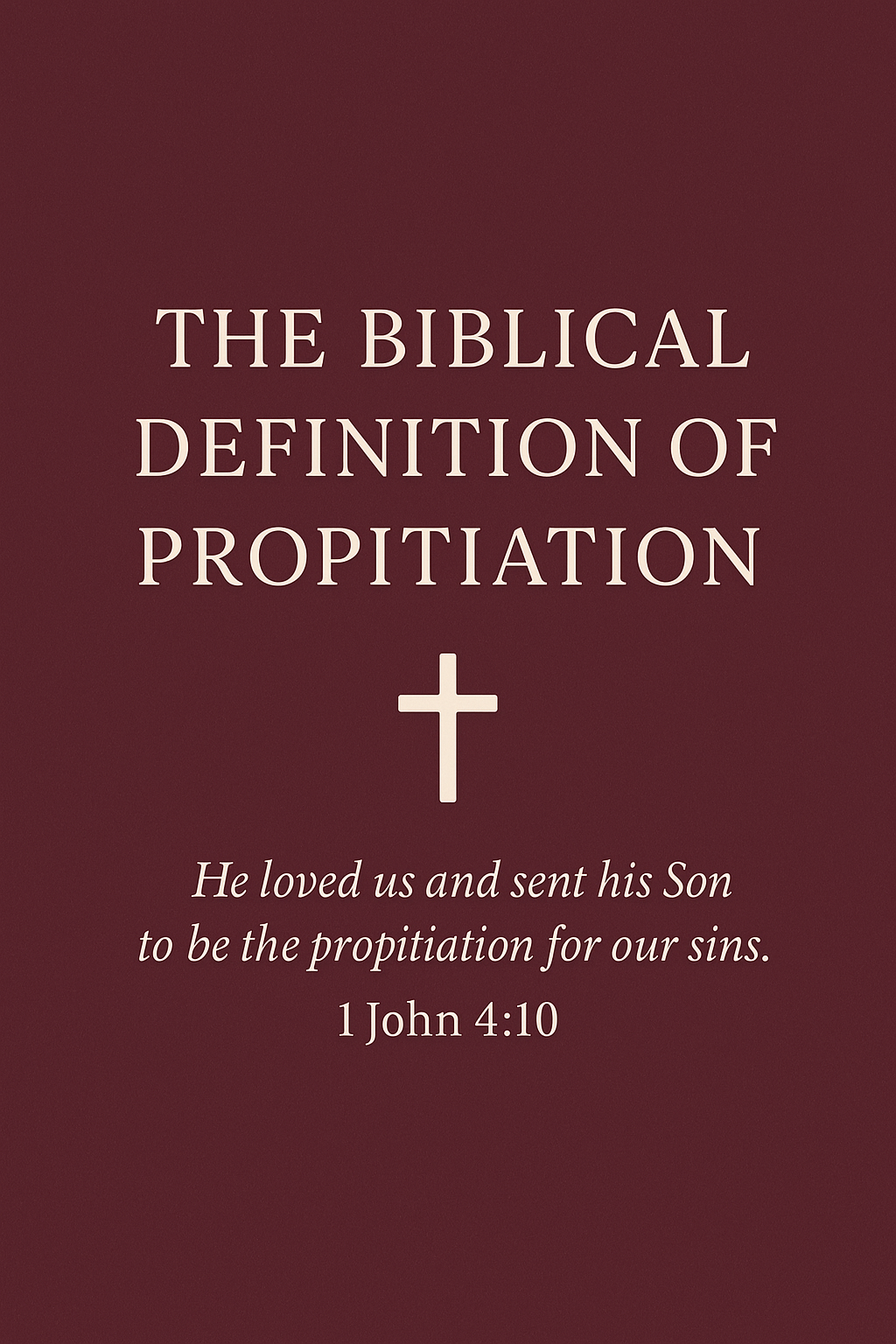Biblical Definition of Repentance: What It Really Means and Why It Matters
The biblical definition of repentance is a foundational concept in Christian faith, yet it’s often misunderstood or reduced to mere feelings of regret. To grasp its true meaning, we must explore what the Bible actually teaches about repentance, its linguistic roots, and its practical implications for our lives.
What Is Repentance? A Biblical Overview
At its core, repentance in the Bible is not just feeling sorry for sin but involves a complete transformation—a turning away from sin and a turning toward God. The Lexham Bible Dictionary defines repentance as "an event in which an individual attains a divinely provided new understanding of their behavior and feels compelled to change that behavior and begin a new relationship with God" (Hebrews 6:1; Acts 20:21)1.
Key elements of biblical repentance:
Conviction of sin: Recognizing the seriousness and offensiveness of sin before God3.
Contrition: Genuine sorrow and grief over having sinned, not just fear of consequences35.
Turning away from sin: A decisive break from past behaviors and attitudes15.
Turning toward God: Embracing a new, God-honoring way of life13.
Repentance in the Old Testament
Interestingly, there is no single Hebrew word that directly translates to "repentance" as understood in English. Instead, the Old Testament expresses repentance through various actions and attitudes, such as:
Public mourning over sin (Ezra 10:1)
Tearing garments and wearing sackcloth (Joel 1:13)
Making restitution for wrongs (1 Chronicles 21:22–26)
Abasing oneself before the wronged party (Genesis 33:3)1
The Hebrew word most closely associated with repentance is often translated as "return," meaning to turn around and go in the opposite direction. In a spiritual sense, this means turning from a path of rebellion against God to one of obedience and faithfulness1.
Key Old Testament passages:
2 Chronicles 7:14: "If my people who are called by my name will humble themselves and pray and seek my face and turn from their wicked ways, then I will hear from heaven, and I will forgive their sin and heal their land."
Ezekiel 18:21–23: God delights not in the death of the wicked, but in their turning from their ways so that they might live1.
Repentance in the New Testament
The New Testament brings sharper focus to the concept of repentance, using the Greek word metanoia, which literally means "a change of mind." However, biblical repentance is much more than intellectual agreement—it is a radical reorientation of one’s entire life.
Three Greek words for repentance:
Metamelomai: A change of mind that produces regret or remorse, but not necessarily a change of heart or action (e.g., Judas in Matthew 27:3)57.
Metanoeo: To change one’s mind and purpose, turning from sin to God. This is the most common word for repentance in the New Testament57.
Epistrepho: To turn back or return, emphasizing the act of turning to God3.
Key New Testament passages:
Matthew 4:17: "From that time Jesus began to preach, saying, 'Repent, for the kingdom of heaven is at hand.'"
Acts 2:38: "Peter replied, 'Repent and be baptized, every one of you, in the name of Jesus Christ for the forgiveness of your sins. And you will receive the gift of the Holy Spirit.'"
Acts 3:19: "Repent, then, and turn to God, so that your sins may be wiped out, that times of refreshing may come from the Lord."
Luke 24:47: "Repentance for the forgiveness of sins will be preached in his name to all nations, beginning at Jerusalem"37.
The Heart of True Repentance
Genuine biblical repentance is not just a one-time event but an ongoing attitude and practice in the life of a believer. It involves:
A new perspective on God, self, and sin: Repentance means seeing sin as God sees it and valuing His holiness above personal comfort or reputation39.
Sorrow for sin: Not just regret for consequences, but grief over having offended God (Psalm 51:4)5.
Hatred of sin and desire for change: A true penitent turns from sin with abhorrence and seeks to live in humble obedience to God (Psalm 119:128; Job 42:5–6; 2 Corinthians 7:10)5.
Persistent pursuit of holiness: Repentance is accompanied by a sincere effort, relying on God’s grace, to walk in obedience (Psalm 51:1, 9–10)5.
Repentance and Faith: Two Sides of the Same Coin
Repentance and faith are inseparable in the biblical message. To repent is to turn from sin; to believe is to turn to God in trust. Both are essential for salvation and are frequently linked in Scripture (Mark 1:15; Acts 20:21)13.
“Repentance, together with faith, is essential for the forgiveness of sins.”3
Repentance: Commanded, Not Optional
Repentance is not an optional extra for the super-spiritual; it is a command for everyone. Jesus and the apostles consistently called people to repent as the necessary response to the gospel (Matthew 3:2; 4:17; Mark 1:4, 15; Acts 2:38)79.
“Repentance is not optional for salvation; it is a commandment of God.”9
The Fruits of Repentance
True repentance always produces visible change. John the Baptist called for "fruits in keeping with repentance" (Luke 3:8), meaning that a changed heart will inevitably lead to a changed life. This includes:
Restitution and reconciliation where possible (Luke 19:8)
Obedience to God’s commands
A desire to honor God in all things
Common Misunderstandings About Repentance
Repentance is not just feeling sorry: Mere remorse or regret, especially if motivated by fear of punishment, is not biblical repentance35.
Repentance is not self-reformation: It’s not about trying harder or cleaning up your life in your own strength, but about a God-given change of heart and direction15.
Repentance is not a work that earns forgiveness: Forgiveness is always by grace through faith, but repentance is the necessary response to God’s offer of mercy3.
Repentance in the Life of the Believer
Repentance is not just for unbelievers coming to Christ; it is a continual practice for all Christians. As we grow in our understanding of God’s holiness and our own sinfulness, repentance becomes a daily rhythm, leading to deeper fellowship with God and spiritual renewal (1 John 1:9)3.
Why Repentance Matters
Restores relationship with God: Sin breaks fellowship, but repentance brings restoration and renewed joy (Psalm 51:12).
Brings forgiveness and cleansing: God promises to forgive and purify those who genuinely repent (1 John 1:9; Acts 3:19).
Leads to transformation: Repentance is the gateway to a life of holiness, purpose, and fruitfulness (Romans 12:1–2).
Practical Steps to Biblical Repentance
Recognize and confess your sin before God (Psalm 32:5).
Grieve over your sin and its offense to God (2 Corinthians 7:10).
Turn away from sinful behaviors and attitudes (Isaiah 55:7).
Turn toward God in faith, embracing His mercy and grace (Joel 2:12–13).
Commit to a new way of life empowered by the Holy Spirit (Romans 8:13).
Conclusion
The biblical definition of repentance is far richer and deeper than mere regret or a change of mind. It is a Spirit-empowered transformation—a turning from sin and a turning to God—that leads to forgiveness, restoration, and a life that honors Christ. True repentance is essential for salvation and for ongoing spiritual growth. As Jesus Himself declared, "Repent, for the kingdom of heaven is at hand" (Matthew 4:17).



















